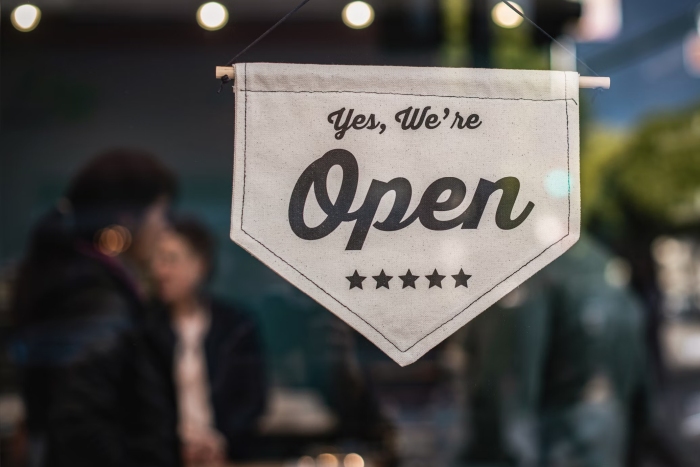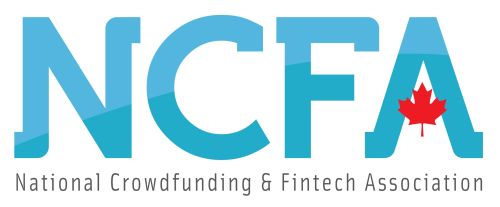Jun 7, 2024

 Image: Unsplash/Tim Mossholder
Image: Unsplash/Tim MossholderBecoming a small business owner can be a dream come true. It means independence, doing things your way, and if your business model works, it can be the career move you needed to stay motivated when you wake up every morning.
Opening your small business and keeping it going in those early years costs money. Whether it’s paying a lease for a storefront, making sure suppliers get paid, or just giving yourself a runway to start finding clients and earning revenue, you need some cash up front to get the ball rolling.
One way to raise that capital is by taking out a personal loan. A personal loan is a line of credit that you can use for any number of reasons. Unlike a mortgage or car loan, there are no hard rules about how you can spend the money. The interest rate is typically lower than a credit card. The loan can either be unsecured or require collateral.
It can be a big risk taking out a personal loan to fund your small business, whether you’re just getting started or trying to keep your business afloat. Once you involve your personal finances, you’re on the hook for that money, whether your business survives or not.
How To Deal with Personal Debt from Your Small Business?
When you take out personal debt to help your business survive, you’re betting on your business’s ability to ride out the storm and eventually pay you back. That’s now always how the story goes, and if your business fails, you can find yourself facing a large personal debt and no way to pay it back in a reasonable period of time.
Your options for dealing with that debt depend on whether it is a secured or unsecured loan. Talking to a Licensed Insolvency Trustee is a great place to start. You can find out about debt relief options from sources like BankruptcyCanada.com and compare options like bankruptcy and consumer proposals.
If your debt is secured, you had to put up collateral, such as home equity or another asset. In that case, you may have to sell the asset to pay back your debts. Otherwise, the lender may be able to put a lien on it or seize it altogether. A lien is a legal claim to the asset that may allow the lender to seize it.
However, if your debts are unsecured, such as a personal loan or credit card debt, debt relief may be a better option. While bankruptcy is often the first thing people think of when they’re stuck deep in debt, consumer proposals are often a better choice that will protect your personal assets.
If you find yourself having to file bankruptcy, assets such as property and investments can still be at risk. A consumer proposal works quite differently.
Working with a Licensed Insolvency Trustee, you come up with a plan for repaying a fraction of the debt you owe over a period of up to five years without having to struggle against interest rates. You can wind up paying as little as 20% of the amount you initially borrowed.
See: The AI Litmus Test: Good Businesses are Good Businesses, With or Without AI
Understanding what happens with debt when you can’t repay it can help you make better decisions for yourself and your business.

 The National Crowdfunding & Fintech Association (NCFA Canada) is a financial innovation ecosystem that provides education, market intelligence, industry stewardship, networking and funding opportunities and services to thousands of community members and works closely with industry, government, partners and affiliates to create a vibrant and innovative fintech and funding industry in Canada. Decentralized and distributed, NCFA is engaged with global stakeholders and helps incubate projects and investment in fintech, alternative finance, crowdfunding, peer-to-peer finance, payments, digital assets and tokens, artificial intelligence, blockchain, cryptocurrency, regtech, and insurtech sectors. Join Canada’s Fintech & Funding Community today FREE! Or become a contributing member and get perks. For more information, please visit: www.ncfacanada.org
The National Crowdfunding & Fintech Association (NCFA Canada) is a financial innovation ecosystem that provides education, market intelligence, industry stewardship, networking and funding opportunities and services to thousands of community members and works closely with industry, government, partners and affiliates to create a vibrant and innovative fintech and funding industry in Canada. Decentralized and distributed, NCFA is engaged with global stakeholders and helps incubate projects and investment in fintech, alternative finance, crowdfunding, peer-to-peer finance, payments, digital assets and tokens, artificial intelligence, blockchain, cryptocurrency, regtech, and insurtech sectors. Join Canada’s Fintech & Funding Community today FREE! Or become a contributing member and get perks. For more information, please visit: www.ncfacanada.org
Related Posts
- SEO Powered Content & PR Distribution. Get Amplified Today.
- PlatoData.Network Vertical Generative Ai. Empower Yourself. Access Here.
- PlatoAiStream. Web3 Intelligence. Knowledge Amplified. Access Here.
- PlatoESG. Carbon, CleanTech, Energy, Environment, Solar, Waste Management. Access Here.
- PlatoHealth. Biotech and Clinical Trials Intelligence. Access Here.
- Source: https://ncfacanada.org/the-pros-and-cons-of-taking-on-personal-debt-to-start-your-business/



